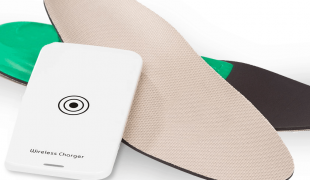- 21427
- 996
- 37
- 48
- 0
- Help Ukraine
Über die Lösung
Nachdem sein 17 jähriger Sohn Itamar mehrmals von Pflegern schlecht behandelt worden war, suchte Doron Somer nach einer Möglichkeit, Itamars Wohlbefinden auf Abstand zu bewachen.
AngelSense verfügt über ein hoch entwickeltes System zur Datenanalyse, speziell um Personen zu orten, und sein Design entspricht den speziellen Anforderungen von Kindern mit besonderen Bedürfnissen und deren Eltern.
„Jedes fünfte Kind mit besonderen Bedürfnissen wird körperlich, jedes sechste sexuell missbraucht. Und in den USA wird jeden Tag ein solches Kind vermisst”, sagt Somer.
Somer begann 2012 sich in GPS Geräte zu vertiefen und entdeckte, dass die existierenden Produkte geeignet sind um Hunde und Gepäck zu orten, nicht aber Kinder.
In Zusammenarbeit mit dem israelischen Hightech-Elektroingenieur und sozialem Unternehmer Nero Ben-Azar, entwarf Somer ein persönliches GPS, speziell geeignet für Kinder mit besonderen Bedürfnissen, die oft an motorischen Störungen und Zwangshandlungen leiden und dadurch tragbare Geräte leicht verlieren.
AngelSense benutzt Cloud-basierte Datenanalyse und ist an eine App gekoppelt um eine ständige Ortung zu ermöglichen. So entsteht ein visuelles Tagebuch des Kindes.
Eltern und Pfleger können AngelSense auch benutzen um Fotos und andere Informationen zu teilen und bekommen so einen Gesamtüberblick über die Tagesaktivitäten des Kindes.
AngelSense fungiert als Kommunikationsmittel für Eltern, Pfleger und Kinder.
Das AngelSense GPS kam 2014 auf den Markt.
Weitere Informationen: https://www.angelsense.com
Http://jewishbusinessnews.com/2015/10/04/angelsense-keeps-special-needs-kids-safe/
German translation by Ulrike Martens.
https://www.youtube.com/watch?v=IK8aM-sRLTk
Diese Lösung enthält keinen Hinweis weder auf die Verwendung von Arzneimitteln, Chemikalien oder biologische Stoffe (einschließlich Lebensmitteln) noch auf invasive Geräte, anstößige, kommerzielle oder inhärent gefährliche Inhalte. Diese Lösung wurde nicht medizinisch validiert. Vorsicht! Wenn Sie irgendwelche Zweifel haben, wenden Sie sich bitte an einen Arzt.
DISCLAIMER: This story was written by someone who is not the author of the solution, therefore please be advised that, although it was written with the utmost respect for the innovation and the innovator, there can be some incorrect statements. If you find any errors please contact the patient Innovation team via info@patient-innovation.com
-
-
802
-
0
-
17565

Proloque2Go - App Menschen zu helfen, zu kommunizieren
CAREGIVING
COMMUNICATION: Communicating, whether by speaking, listening, or other means
Social interaction
Paralysis
Autism
Cerebral Palsy
Brain Stroke
Brain Injury (Abscess, Brain Barrier Defect, Brain Contusion, Brain Hemorrhage, Brain Edema)
Assistive Daily Life Device (to help ADL)
Assistive Technology access
App (Including when connected with wearable)
Tremors
Muscle cramps or spasms
Difficulty coordinating movements
Muscle weakness
Difficulty speaking or understanding speech
Trouble with fine motor skills (e.g., writing, buttoning clothes)
Twitching or involuntary movements (myoclonus)
Acquired language impairment (Aphasia)
Promoting self-management
Managing Neurological Disorders
Building Supportive Community Relationships
Promoting inclusivity and social integration
Improving Speech and Communication
Caregiving Support
Clinical Pathology
Medical Genetics
Neurology
Pediatrics
Rheumatology
Netherlands
-
-
-
440
-
2
-
9731

SmartSole GPS - Tracker für Menschen mit Alzheimer, Demenz und Autismus
COMMUNICATION: Communicating, whether by speaking, listening, or other means
WALKING: Walking
CAREGIVING
Alzheimer's Disease
Dementia (Alcoholic Dementia, Vascular Dementia)
Body-Worn solutions (Clothing, accessories, shoes, sensors...)
Difficulty coordinating movements
Loss of balance
Social withdrawal or isolation
Cognitive impairment
Memory loss
Irritability or anger outbursts
Confusion
Restlessness or feeling slowed down
Anxiety
Panic attacks
Difficulty controlling impulses
Mood swings
Feelings of guilt or worthlessness
Suicidal thoughts or behaviors
Hallucinations (perceiving things that aren't there)
Dizziness or lightheadedness
Fatigue
Restoring mobility
Promoting self-management
Building Supportive Community Relationships
Promoting inclusivity and social integration
Improving Speech and Communication
Preventing (Vaccination, Protection, Falls, Research/Mapping)
Raise awareness
Caregiving Support
Child and Adolescent Psychiatry
General and Family Medicine
Internal Medicine
Medical Genetics
Neurology
Pediatrics
Psychiatry
United States
-
-
-
0
-
0
-
9

Wie eine Mutter und ihre Tochter ein Start-up gründeten, um jedem bedürftigen Kind psychische Unterstützung zukommen zu lassen
COMMUNICATION: Communicating, whether by speaking, listening, or other means
CAREGIVING
Social interaction
ADHD
Depressive Disorders (Major Depression, Childhood Depression, Postpartum Depression)
App (Including when connected with wearable)
Managing pain
Enhancing health literacy
Promoting self-management
Managing Neurological Disorders
Enhancing Mental Health
Preventing (Vaccination, Protection, Falls, Research/Mapping)
Raise awareness
Caregiving Support
General and Family Medicine
Pediatrics
Psychiatry
United States
-
 de
de